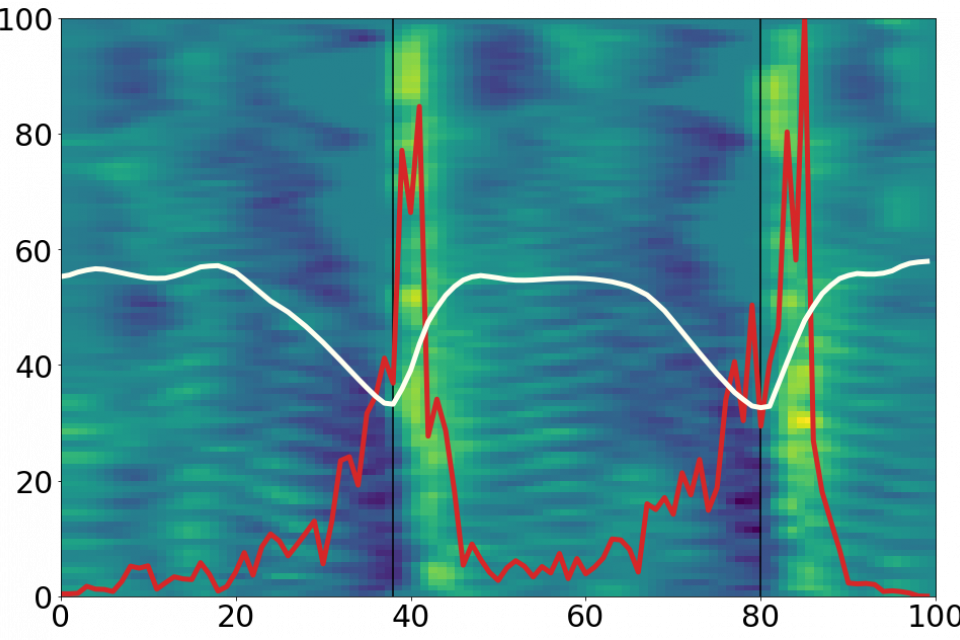Datasets
Standard Dataset
Sensitive quantification of cerebellar speech abnormalities: OpenSMILE
- Citation Author(s):
- Submitted by:
- Brandon Oubre
- Last updated:
- Wed, 01/10/2024 - 09:14
- DOI:
- 10.21227/brvz-0g97
- Data Format:
- License:
Abstract
Objective, sensitive, and meaningful disease assessments are critical to support clinical trials and clinical care. Speech changes are one of the earliest and most evident manifestations of cerebellar ataxias. This data set contains features that can be used to train models to identify and quantify clinical signs of ataxic speech. Though raw audio or spectrograms cannot be released due to privacy concerns, this data set contains several OpenSMILE feature sets. Many labels, such as data collection dates and specific diagnoses, have been obfuscated or redacted to maintain privacy given the rarity of the diseases in the data.
This data set contains features extracted from repetitive syllables tasks. It is associated with the following paper:
K. Vattis, et al.,"Sensitive quantification of cerebellar speech abnormalities using deep learning models," IEEE Access
For privacy reasons, the raw/spectrogram data used in the paper cannot be publicized. This data set instead contains OpenSMILE features for the data. Labels are described below. Many labels have been obfuscated, have reduced resolution, or are redacted (e.g., specific diagnoses) to protect participant privacy.
- ID: A unique subject identifier. Original study IDs were randomized prior to inclusion in this release.
- Date: An ascending integer sequence denoting the relative order of data collection dates for a subject. The exact dates are redacted for privacy.
- age_decade: The decade-of-life of the subject, rounded down. E.g., a 19-year-old will be decade 10. Exact ages are redacted for privacy.
- sex: F for female, M for male
- bars_speech: BARS speech scores on a half-point scale. Some scores included in this release have been averaged across different raters.
- bars_total: BARS total scores of a half-point scale. Some scores included in this release have been averaged across different raters.
- gen_diagnosis: Whether this subject was a control or had an ataxia-related diagnosis.
- label_offset_days: The number of days between BARS administration and data collection. Negative values indicate that BARS was performed prior to the data collection.
- delta_months: The number of months (rounded down) between subsequent Dates. Always 0 for Date 1. This column provides a rough scale of time between subsequent Date labels.
Additional columns prepended to the OpenSMILE feature sets include:
- Task: Which repetitive syllables task the data was derived from. (MeMeME, GoGoGo, or LaLaLa)
- StudyType: Whether the data was collected in a controlled or remote setting.
- ID: As above.
- Date: As above.
- Repetition: Distinguishes between multiple data collections on the same day.
OpenSMILE features were computed using the default configuration files provided with v3.0.1. Assuming $OpenSMILE maps to the installation directory, the config files are:
- prosody: $OpenSMILE/config/prosody/prosodyAcf.conf
- ComParE: $OpenSMILE/config/compare16/ComParE_2016.conf
- IS10: $OpenSMILE/config/is09-13/IS10_paraling.conf
- eGeMAPS: $OpenSMILE/config/egemaps/v02/eGeMAPSv02.conf
- emobase: $OpenSMILE/config/emobase/emobase.conf
For additional information, contact Anoopum Gupta: agupta@mgh.harvard.edu

 414 Views
414 Views




